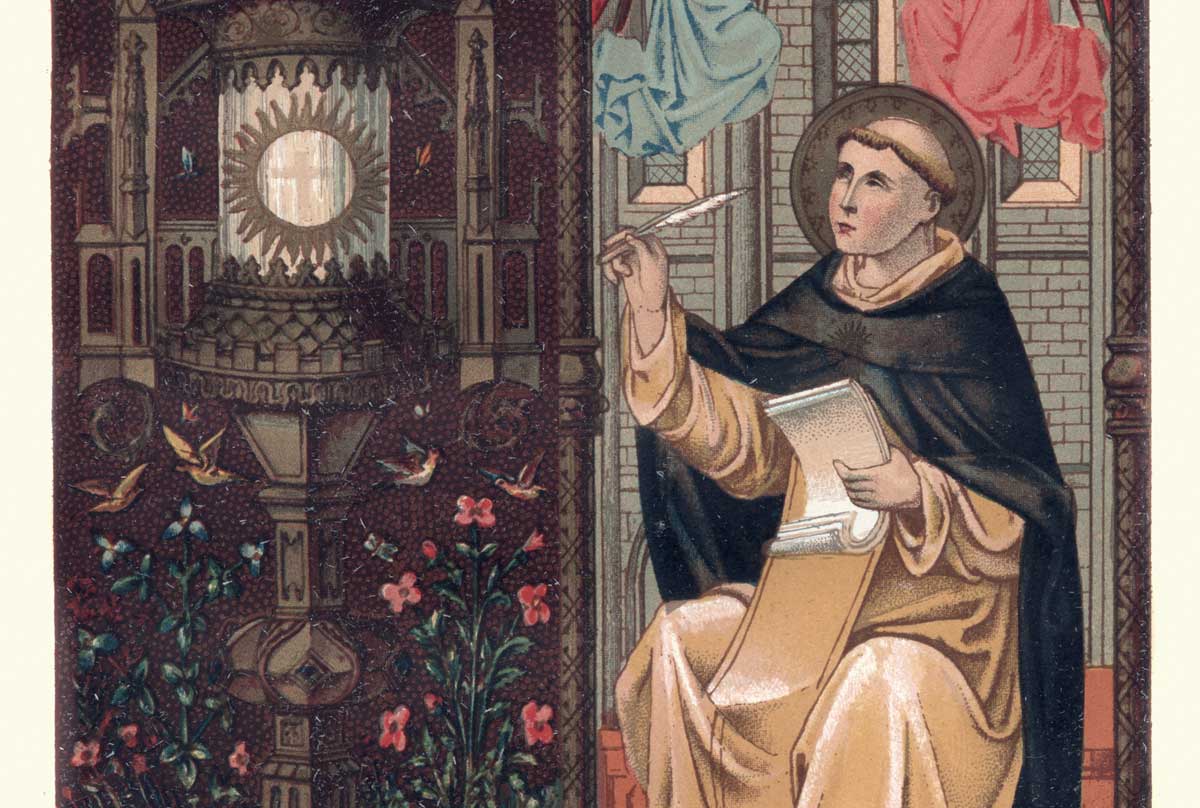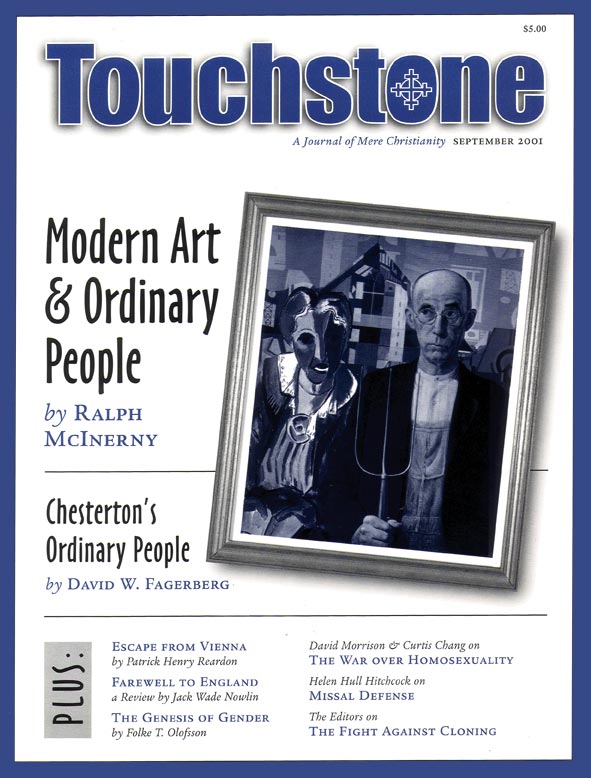Splendor in the Ordinary
David W. Fagerberg on Chesterton’s Incarnational Style
Being a credulous and docile person, I listen attentively when persons wiser than myself tell me that there is a great deal to be learned from literature. Being a virtuous and amicable person, I have resolved some day to read more literature. Being a person with no natural disposition towards literature, I am procrastinating in my literary excursions until I’m older and wiser, at which time they will no doubt do me more good. But being an academic person, I have in the meantime done the next best thing to reading literature: I have read a book about literature.
In the middle of this century, Erich Auerbach, who became professor of romance languages at Yale, wrote a survey of Western literature entitled Mimesis: The Representation of Reality in Western Literature. The reality Auerbach hoped to find represented was ordinary, mundane, routine reality.
Impossible Treatments
His survey begins with Homer, winds through Roland and Chrétien, visits Dante and Shakespeare, analyzes Molière, Goethe, and Zola, arrives at Woolf and Proust, and then informs the reader that although in modern literature any character, regardless of type or social standing, can be treated seriously, this was not always the case. In antiquity, serious treatment of the wrong subject was completely impossible.
There were rules determining the nature of each style and the subjects it could treat. Certain subjects required certain literary styles. Tragedies were written in a different style (elevated) from comedies (low), and the subjects the tragedies could treat were also different from those the comedies could treat.
Ordinary, mundane, routine reality was always treated as the subject of comedy. For the ancient authors, “There could be no serious literary treatment of everyday occupations and social classes—merchants, artisans, peasants, slaves—of everyday scenes and places—home, shop, field, store—of everyday customs and institutions—marriage, children, work, earning a living—in short, of the people and its life.”
It was an almost universal rule that the realistic depiction of daily life was incompatible with the sublime, that the mundane had a place only in comedy. A tragedy always showed a hero or nobleman suffering the twists of fate; it never showed an ordinary man or woman coping with the quotidian. A prince who finds that he had killed his father and married his mother is a subject for tragedy, but a salesman who dies in despair is not. In ancient literature, nobility, greatness, and excellence were not to be found in everyday reality or everyday people.
The modern writers Auerbach surveyed could write about a poor man seriously, but most (though not all) could only write about him from a distance, and many (though again, not all) did not write as if his life and sufferings were as noble as the intellectual’s. At this point, my thought turned to Chesterton, for I can think of few people who took the common man more seriously than he did, or believed more completely in the eternal worth of ordinary life.
Chesterton remembered in his youth disliking people with “shiny pebbly eyes and patient smiles,” whose “patience mostly consisted of waiting for others to rise to the spiritual plane where they themselves already stood,” he told us in his Autobiography. “It is a curious fact, that they never seemed to hope that they might evolve and reach the plane where their honest green-grocer already stood. They never wanted to hitch their own lumbering wagon to a soaring cabman; or see the soul of their charwoman like a star beckon to the spheres where the immortals are.”
Chesterton eschewed the highbrow who, believing the circle of life could be turned more thrillingly by esoteric pleasures, valued only an elite inner circle of friends, expected to be especially sensitive and spiritually elevated. For Chesterton, ordinary people were not comic players on the stage of life whose hopes and pains were to be laughed at, while noble accomplishments and tragic suffering were to be found exclusively in the social and intellectual elites.
David W. Fagerberg is Associate Professor in the Department of Theology of the University of Notre Dame and the author of The Size of Chesterton?s Catholicism (Notre Dame).
subscription options
Order
Print/Online Subscription

Get six issues (one year) of Touchstone PLUS full online access including pdf downloads for only $39.95. That's only $3.34 per month!
Order
Online Only
Subscription

Get a one-year full-access subscription to the Touchstone online archives for only $19.95. That's only $1.66 per month!
bulk subscriptions
Order Touchstone subscriptions in bulk and save $10 per sub! Each subscription includes 6 issues of Touchstone plus full online access to touchstonemag.com—including archives, videos, and pdf downloads of recent issues for only $29.95 each! Great for churches or study groups.
Transactions will be processed on a secure server.
more from the online archives

23.6—November/December 2010
Darwin, Design & Thomas Aquinas
The Mythical Conflict Between Thomism & Intelligent Design by Logan Paul Gage
calling all readers
Please Donate
"There are magazines worth reading but few worth saving . . . Touchstone is just such a magazine."
—Alice von Hildebrand
"Here we do not concede one square millimeter of territory to falsehood, folly, contemporary sentimentality, or fashion. We speak the truth, and let God be our judge. . . . Touchstone is the one committedly Christian conservative journal."
—Anthony Esolen, Touchstone senior editor








